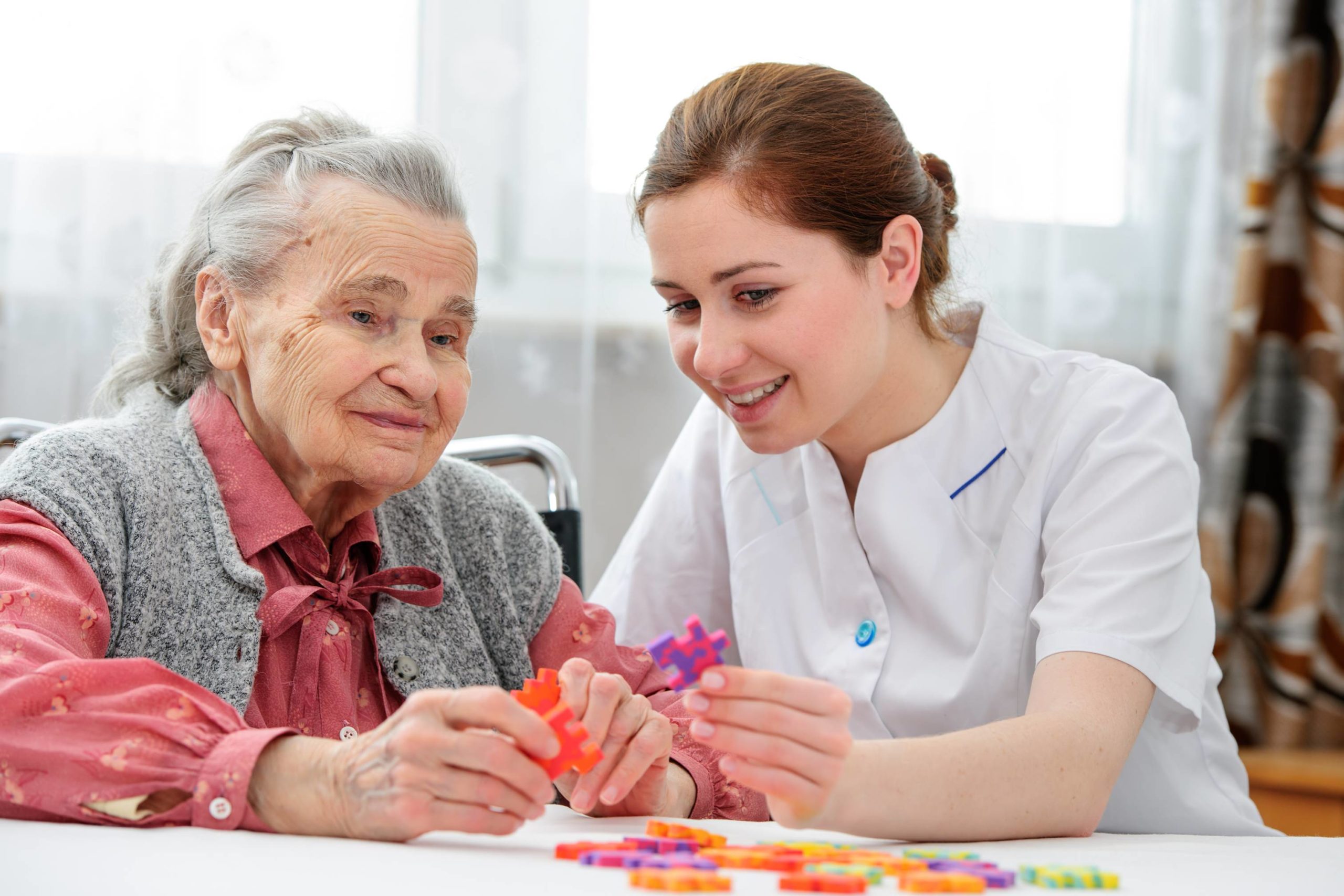Developing an Encouraging Setting With Specialist Mental Deterioration Treatment
Creating an encouraging atmosphere for people with dementia demands a multifaceted technique that integrates skilled care techniques customized to their distinct demands. The role of caregivers in this dynamic can not be forgotten, as their well-being is similarly critical to supplying thoughtful care.
Comprehending Mental Deterioration Needs
When resolving the complexities of dementia treatment, recognizing the unique requirements of people coping with this condition is critical - Dementia Care Charlotte. Dementia is a diverse cognitive problem that influences memory, reasoning, and daily functioning. As a result, caretakers and healthcare professionals should acknowledge that each person's experience with mental deterioration differs dramatically, affected by factors such as the kind of dementia, stage of the disease, and personal history.
Efficient mental deterioration treatment demands a person-centered strategy that values the person's choices, routines, and values. This consists of cultivating open interaction, which can assist caregivers discern the specific demands and wishes of those they support. Additionally, understanding behavior modifications, such as agitation or withdrawal, is essential, as these behaviors often signify unmet requirements or discomfort.
Moreover, caretakers ought to be equipped with expertise relating to the emotional and psychological facets of dementia. People might experience feelings of aggravation, sadness, or confusion, necessitating caring responses that verify their experiences. By growing an environment of compassion and understanding, caretakers can boost the quality of life for people with dementia, ensuring they really feel valued and sustained throughout their journey.
Creating Safe Spaces
Creating risk-free rooms for individuals with dementia is crucial, as a well-designed atmosphere can significantly improve their feeling of security and self-reliance. The physical format of a room ought to prioritize safety and security while advertising autonomy. This includes lessening barriers, ensuring clear pathways, and utilizing non-slip floor covering to reduce the risk of falls.
Integrating acquainted and comforting aspects, such as individual pictures and valued possessions, can assist alleviate anxiousness and develop a feeling of belonging. In addition, utilizing appropriate lighting is important; all-natural light is more effective, yet soft, flexible lights can aid protect against complication and disorientation throughout various times of day.

Communication Strategies
Reliable interaction techniques are important for promoting purposeful communications with people living with dementia. Given the cognitive challenges connected with this condition, caretakers need to use approaches that boost understanding and reduce aggravation.
This approach aids to develop depend on and signals that the caregiver is fully involved. It is likewise useful to ask yes-or-no questions, as these are easier for people with mental deterioration to process and solution.
Non-verbal interaction plays a significant role too; gestures, facial expressions, and touch can convey empathy and link. Caretakers must be in harmony with the individual's non-verbal cues to determine their emotion and adjust their strategy as necessary.
Individuals with dementia might these details call for extra time to process details and create their thoughts. By carrying out these interaction techniques, caregivers can produce an encouraging atmosphere that enhances the wellness of people living with mental deterioration.
Involving Activities
Engaging activities play a crucial duty in enhancing the quality of life for individuals dealing with mental deterioration, enhancing the interaction techniques formerly reviewed. These tasks not just supply cognitive stimulation however likewise promote a sense of function and belonging. Tailoring activities to straighten with the person's rate of interests, abilities, and preferences is vital for making the most of engagement.
Imaginative pursuits, such as art and songs therapy, can stimulate emotions and memories, promoting connections with caretakers and peers. Easy tasks like horticulture or food preparation permit significant participation, encouraging freedom and self-confidence. Physical tasks, including walking or mild exercises, promote total health and can minimize anxiety and agitation.

Support Resources for Caregivers
Taking care of a specific with mental deterioration can be a frustrating experience, making access to support sources crucial for caregivers' health. Various resources are available to help caretakers in handling the psychological and practical difficulties connected with dementia treatment.
Regional support teams offer a crucial platform for caregivers to share experiences, obtain motivation, and gain insights from others dealing with similar obstacles. Several organizations, such as the Alzheimer's Organization, use curricula and workshops that enhance caretakers' abilities and understanding regarding mental deterioration.
In addition, respite treatment solutions can be indispensable, permitting caretakers to take needed breaks without jeopardizing the treatment supplied to their liked ones. This kind of support can avoid caregiver burnout, promoting general mental and physical health.
On the internet sources, consisting of web sites and online forums dedicated to dementia care, provide caretakers the versatility of accessing information and neighborhood support at their comfort. Furthermore, psychological health professionals specializing in caretaker assistance can provide tailored counseling and coping methods.
Integrating these support sources into day-to-day regimens guarantees that caregivers not just fulfill their responsibilities effectively however likewise prioritize their very own health, fostering a healthier caregiving setting.
Final Thought
In verdict, developing a helpful environment for people with mental deterioration requires a multifaceted strategy that addresses their unique demands. Highlighting safe, acquainted areas, effective interaction techniques, and meaningful interaction enhances the top quality of care provided. Outfitting caregivers with crucial resources and assistance is essential for cultivating their well-being and allowing them to supply caring treatment. Together, these aspects add to a holistic structure that advertises safety, convenience, and psychological health for both individuals with dementia and their caretakers.
Creating a supportive atmosphere for individuals with mental deterioration demands a complex approach that integrates professional care methods customized to their one-of-a-kind demands. Dementia Care Charlotte. Caregivers and healthcare professionals should acknowledge her latest blog that each individual's experience with dementia varies considerably, influenced by elements such as the type of dementia, stage of the disease, and individual background
By growing a setting of compassion and understanding, caregivers can enhance the quality of life for individuals with dementia, guaranteeing they really feel valued and sustained throughout their journey.
By executing these communication techniques, caretakers can develop a helpful environment that improves the well-being of people living with mental deterioration.
With each other, these aspects contribute to an all natural structure that promotes safety, comfort, and psychological health and wellness for both individuals with mental deterioration and their caretakers.